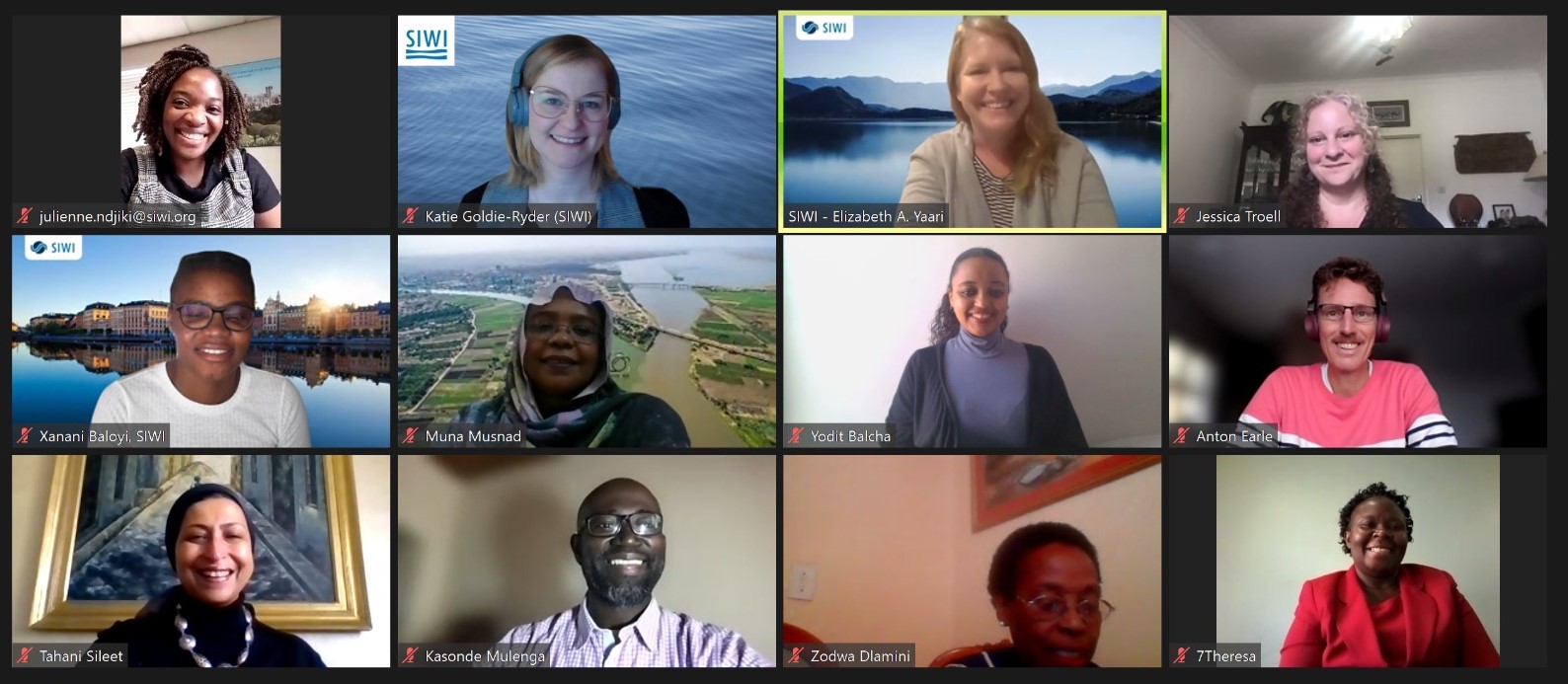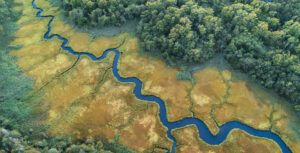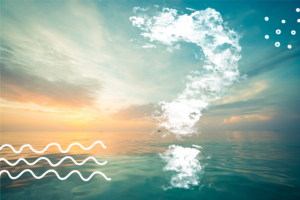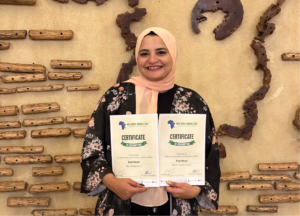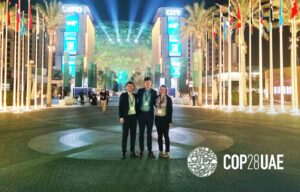Women in Water Diplomacy: Nile and Beyond
“We must now continue to build momentum and understand that this is a universal issue that must be addressed as such.”
For that very reason, Tuesday’s meeting also saw the launch of the new Women in Water Diplomacy Nile and Beyond strategy development process. The success of the original Network, focusing on the Nile Basin, is, as Dr Dlamini notes, widely praised and there has been immense interest and inquiry from other African transboundary basins. The Nile and Beyond strategy will therefore explore opportunities to develop a community of practice for women water diplomats in other regions and basins, drawing upon the experience of the Network’s development in the Nile as well as the process and Central Asia and Afghanistan.
It is not yet clear, however, where this ‘beyond’ might actually be? The next Nile and Beyond strategy consultation for current and new partners is planned for March 8, 2022 – International Women’s Day – and is expected to provide further resolution on the strategy and Network priorities in years to come. The general focus though, will be basins with a high-level of both water insecurity and gender inequality. The list of regions that meet this description is long, something which underlines the importance of the assessment and engagement process ahead.
The Nile and Beyond strategy will revolve around eight strategic pillars, each of which captures important aspects and challenges of women’s participation in transboundary water, including:
- Gender empowerment in transboundary water decision making.
- Youth empowerment and inter-generational knowledge exchange.
- Peer to peer learning and capacity building.
- Technical cooperation and experience exchange.
- Research cooperation.
- Linkages to pan-African processes.
- Linkages to global processes.
- Linkages to basin processes.
Network Council Member Jacqueline Nyirakamana, a transboundary water resources cooperation specialist from Rwanda’s Ministry of Environment, explains the pressing need to accelerate efforts to include women in water diplomacy: “There is a great gender imbalance in the water sector in general, and in transboundary water issues in particular. In most cases, men make the decisions even though women are the ones who are most affected by the outcome. So, we need women in the water world, from engineering and hydrology to diplomacy. We must empower women and make sure that they can participate fully and bring their real-life expertise into this field.”
“Men make the decisions even though women are the ones who are most affected by the outcome. (...) We must empower women and make sure that they can participate fully and bring their real-life expertise into this field.”
During the launch seminar, several speakers and panellists repeated this message. One was the Swedish Ambassador to South Africa, Mr Håkan Juholt, who hosted the meeting and spoke passionately about both Sweden’s and SIWI’s long-time commitment to uncover and address gender inequality in all parts of society.
The reasons behind the startling gender inequality in the world of water diplomacy are complex and will require a multifaceted set of actions. According to Dr. Dlamini, it is important to remember that direct support and building of confidence are important aspects:
“As women in the water sector, our main obstacle is often ourselves. Many opportunities seem to be tailored for men and it is easy for a woman to think that ‘this is not for me’, ‘I will not be accepted here’, or ‘my expertise is not good enough’. We must change that perception, so that women feel encouraged and empowered to participate fully and contribute with their expertise. Only good things will come out of that.”
Watch the recording of the event
You need to accept cookies in order to see the video below. Or watch it on YouTube.
About the Women in Water Diplomacy Network
The Women in Water Diplomacy Network is a project of the Stockholm International Water Institute’s Shared Water Partnership programme (SWP). SWP was founded in 2010 as a platform to improve cooperation over shared waters in regions where water is, or may become, a source of conflict or where water can serve as a catalyst for peace. The overall objective of the Shared Waters Partnership is peaceful cooperation between basin states sharing transboundary water sources. The Shared Waters Partnership and the Women in Water Diplomacy Network are supported by the Swedish International Development Cooperation Agency, the United States, Norway, the Netherlands, and UNDP. The Women in Water Management Network development process is implemented in partnership with OSCE and the Central Asia Regional Environment Centre (CAREC).
The next edition of the Women in Water Diplomacy Nile and Beyond Newsletter will come out on Nile day, February 22, 2022. Make sure to subscribe below to receive our updates.
(You need to allow cookies to see the newsletter sign-up box or visit our Newsletters page)
